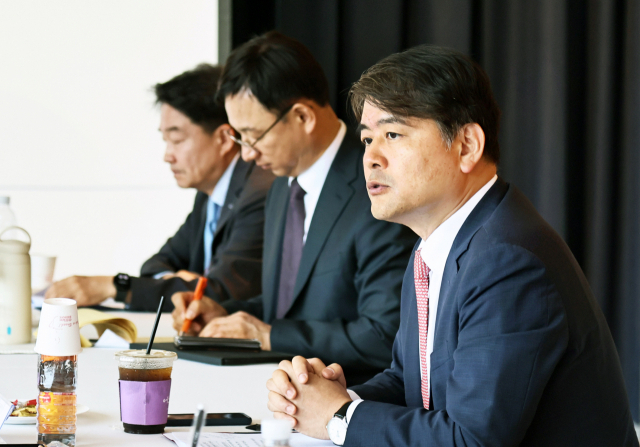South Korea, US agree to work closely to address IRA, trade concerns
Seoul officials say Korean businesses still confused over Washington’s toughened trade rules lacking details
By Jo He-rimPublished : June 29, 2023 - 18:03

South Korea and the United States agreed to work closely to resolve concerns over the US' Inflation Reduction Act, discussing ways to strengthen battery supply chains, Thursday.
South Korean Deputy Minister Joo Young-joon in charge of industrial policy at the Ministry Trade, Industry and Energy met with Deputy US Trade Representative Sarah Bianchi visiting Seoul.
During the bilateral talks, Joo assessed that the two sides overall have smoothly managed the IRA issue, closely communicating via various channels, according to the ministry.
The deputy minister however mentioned that South Korean automakers are still somewhat confused about the US law, which they say lacks details on the scope of the "foreign entities of concern" -- or FEOCs -- and requested the US side to review carefully the Korean government's written opinion sent there.
According to the IRA, the US will ban battery components procured from FEOCs in China, Russia, Iran and North Korea from 2024. The same restriction will be applied to core minerals from 2025.
This provision means South Korean electric vehicle manufacturers wishing to export their cars to the US have to source components and parts from countries other than the FEOC suppliers in order for their cars to be eligible for consumer tax credits under the IRA.
Sending a written opinion to the US on June 16, the South Korean government relayed the concerns of Korean EV makers and requested the US to consider the impacts of the FEOC provision, as well as clarify the scope of the countries that have free trade agreements with the US for core mineral extraction and processing.
To be eligible for the IRA's consumer tax credits for electric vehicles, EV batteries must have at least 40 percent of their core minerals extracted or processed in North America or countries that have FTAs with the US, including Japan.
In response, Bianchi underscored how South Korea is one of the most important partners in the US’ battery supply reorganization plan, and vowed to continue to communicate with the Korean government regarding the implementation of the IRA, the ministry said.
During the talks, Bianchi also asked Korea to continue to play a leading role in the Indo-Pacific Economic Framework for Prosperity, the US-led regional economic agreement aimed at countering China’s growing influence in the region.
Korea is hosting the fourth negotiating round for the IPEF July 9-15 in Busan.
Through the IPEF, the 14 partner countries seek to make high-standard, inclusive, free and fair-trade commitments in four key pillar areas: supply chains, trade, the clean economy and a fair economy. Unlike traditional trade pacts that are focused on tariff exemptions and trade benefits among members, the IPEF is largely aimed at setting common regional standards for different sectors of the economy.
The 14 partners are: South Korea, the US, Japan, Australia, New Zealand, India, Indonesia, Thailand, Malaysia, Singapore, Vietnam, Brunei, the Philippines and Fiji.
Ahead of Thursday's bilateral talks, Bianchi paid a courtesy call to Trade Minister Ahn Deok-geun, together with US Ambassador to Korea Philip Goldberg, on the same day. They also exchanged views on ways to strengthen trade cooperation between the two countries.







![[KH Explains] No more 'Michael' at Kakao Games](http://res.heraldm.com/phpwas/restmb_idxmake.php?idx=644&simg=/content/image/2024/04/28/20240428050183_0.jpg&u=20240428180321)



![[Weekender] How DDP emerged as an icon of Seoul](http://res.heraldm.com/phpwas/restmb_idxmake.php?idx=644&simg=/content/image/2024/04/25/20240425050915_0.jpg&u=)






![[Herald Interview] Mistakes turn into blessings in street performance, director says](http://res.heraldm.com/phpwas/restmb_idxmake.php?idx=652&simg=/content/image/2024/04/28/20240428050150_0.jpg&u=20240428174656)
